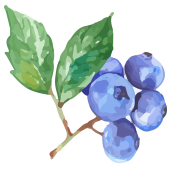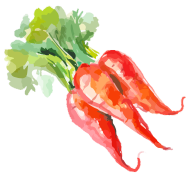Connecting Students to Agriculture
Through Harvest Bin Project we provide schools with bins as raised beds and seed money for establishing their own growing gardens, giving teachers the tools they need to supplement their curriculum, as well as help students learn the business of farming on a small scale.
Why We Love Harvest Bin Project
- Planning and harvesting a school garden is a hands-on, place-based learning opportunity, offering direct connections to Food Science/Home Economics curriculum, along with cross-curriculum connections to Life Skills, Science, Art, Social Studies, and Sustainable Resources.
- Growing their own food connects students more deeply to agriculture and the larger world, giving them a deeper understanding of food security.
- Students enjoy the benefits of eating fresh, locally grown food.
- From caring for the soil to learning about plant life cycles and pollinators, this program models the principles of sustainable agriculture.
- Students can connect directly with a local farmer, their local garden centre, and local agribusinesses, reinforcing the role of agriculture in their communities.
- It allows teachers to take the classroom outdoors, giving them resources and tools to initiate a school garden as a long-term project.
How Does It Work?
To get started with your garden, we provide each school with the following:
- Harvest Bin Project Handbook with planting and growing tips
- 5 portable raised beds — heavy blue plastic bins, each 1.2 M x 1.2 M x 0.6 M
- Financial support to spend at a local garden centre to buy 2 yards of soil, plants, seeds and items to get started.
Five raised harvest bins will be delivered to your school. The bins are meant to be used as raised garden beds, which eliminates the need to dig into the ground. They’re also easily accessible for planting and harvesting, and when they’re empty, they're portable. (Before filling with soil, make sure to position the bins in a south-facing location that receives a minimum of six hours of sunlight/daylight in the growing season, and on a flat surface that’s close to a water source.)
At the start of the project, a BCAITC representative will conduct a start-up online workshop to demonstrate how the project works and to get you and your students up and running with your garden.
Once you and your students have decided what you want to plant, you then plan an excursion to your local garden centre to purchase seeds using your BCAITC funding. You are given the freedom to plan your own garden, which gives students the complete farm experience, as every harvest offers its own challenges and rewards.
We ask teachers to submit mid-season growing highlights with photos, and in June, a year-end report on the project.
Sign Us Up!
We’re in this for the long haul … Much like agriculture itself, Harvest Bin Project is a long-term commitment, and we believe that schools and their students will gain the best learning experience through working on their gardens over the course of a few seasons. For this reason, we require a minimum three-year commitment from schools to qualify for participation.
Here’s What We Need from You
- A school administrator, such as the principal, must support a minimum three-year commitment by signing off on the application.
- A teacher-led team (minimum 2 people) must be created to see the project through staff changes, and to facilitate more cross-curriculum connections (suggested departments: Home Economics, Life Skills, Science, Art, Social Studies, Sustainable Resources, etc.).
- Your school must have adequate outdoor space for the five (portable when empty) bins, along with a water source.
- Participating schools agree to participate in a start-up online workshop with BC Agriculture in the Classroom Foundation (BCAITC).
- You will need to have a parent/student volunteer(s) to take care of the garden during summer break.
How to Apply
- 2026 applications are open from October 16, 2025 to January 16, 2026 click here to complete your application form.
- By mid-January, we will notify those teachers accepted into Harvest Bin Project by email.
What Do We Need to Get Started?
- Harvest Bin Project online start-up workshop: Our job is to give you everything you’ll need to plan and set up your school garden. We’ll work with you to confirm an online workshop date once you’ve been accepted into the program.
- Highlights and updates: We request mid-term growing highlights and updates, along with three to five photos, by May 30. This shows that you’ve met the participation requirements, and it lets us know how the program is working so that we can help if needed and share your experiences with other schools.
Re-enrollment
- In order to be eligible to keep growing in years two and three, the school project team must submit a final report by June 25, to ensure sponsorship of this project is continued.
If you have any questions about Harvest Bin Project, please contact agadventures@aitc.ca
A Crop of Resources!
Your Harvest Bin Project online start-up workshop with a BC Agriculture in the Classroom Foundation (BCAITC) staff member will provide you with the information, skills, and tips you’ll need to get you started with your school garden and to enrich your place-based learning. Teachers will be encouraged to ask questions specific to their needs and objectives. If you have any questions or requests during the project, please email agadventures@aitc.ca.
We have a number of classroom resources that provide helpful information on growing food, along with visuals to enhance Harvest Bin Project cross-curriculum teaching opportunities. All of our general resources are available as downloads or can be ordered from us directly.
Harvest Bin Project Handbook (Teacher guide with planting and growing tips)
Partners Make It Possible — Thank You!
Thank you to all of our partners for their help in offering Harvest Bin Project to BC schools. We are so excited to be able to help make a school garden a reality for participating teachers and their students, and together, we can continue to bring agriculture to our classrooms — both indoors and outdoors!
Thank you to our community partners:
Join Us!
To find out how you or your business can support this exciting program, contact BC Agriculture in the Classroom Foundation, or check out our Partnership Opportunities.



